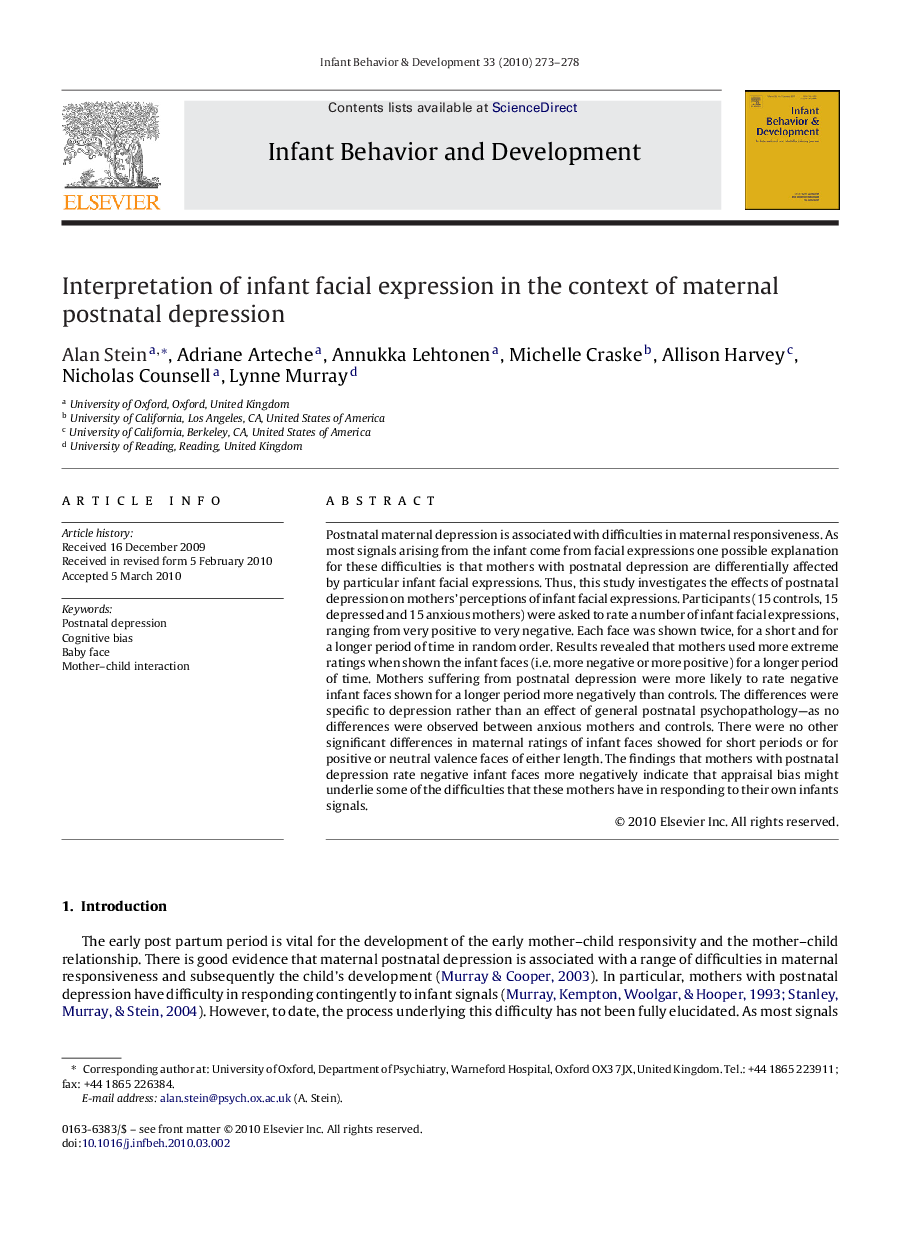| Article ID | Journal | Published Year | Pages | File Type |
|---|---|---|---|---|
| 10452766 | Infant Behavior and Development | 2010 | 6 Pages |
Abstract
Postnatal maternal depression is associated with difficulties in maternal responsiveness. As most signals arising from the infant come from facial expressions one possible explanation for these difficulties is that mothers with postnatal depression are differentially affected by particular infant facial expressions. Thus, this study investigates the effects of postnatal depression on mothers' perceptions of infant facial expressions. Participants (15 controls, 15 depressed and 15 anxious mothers) were asked to rate a number of infant facial expressions, ranging from very positive to very negative. Each face was shown twice, for a short and for a longer period of time in random order. Results revealed that mothers used more extreme ratings when shown the infant faces (i.e. more negative or more positive) for a longer period of time. Mothers suffering from postnatal depression were more likely to rate negative infant faces shown for a longer period more negatively than controls. The differences were specific to depression rather than an effect of general postnatal psychopathology-as no differences were observed between anxious mothers and controls. There were no other significant differences in maternal ratings of infant faces showed for short periods or for positive or neutral valence faces of either length. The findings that mothers with postnatal depression rate negative infant faces more negatively indicate that appraisal bias might underlie some of the difficulties that these mothers have in responding to their own infants signals.
Related Topics
Life Sciences
Neuroscience
Behavioral Neuroscience
Authors
Alan Stein, Adriane Arteche, Annukka Lehtonen, Michelle Craske, Allison Harvey, Nicholas Counsell, Lynne Murray,
